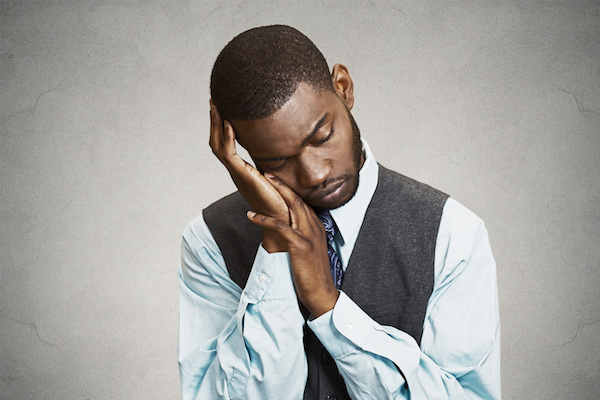MONDAY, Feb. 8, 2016 (HealthDay News) — REM (rapid eye movement) sleep is the phase when dreams are made, and a lack of good REM sleep has long been associated with chronic insomnia.
But new research is building on that association, suggesting that the bad and “restless” REM sleep experienced by insomnia patients may, in turn, undermine their ability to overcome emotional distress, raising their risk for chronic depression or anxiety.
“Previous studies have pointed to REM sleep as the most likely candidate involved in the regulation of emotions,” said study lead author Rick Wassing. He is a doctoral candidate in the Department of Sleep and Cognition at the Netherlands Institute for Neuroscience in Amsterdam.
Wassing noted, for example, that while REM is underway, key arousal hormones such as serotonin, adrenaline and dopamine are inactive. This, he added, may indicate that it is during good REM sleep when the emotional impact of memories is properly processed and resolved.
But when REM sleep is disturbed, emotional distress may accumulate. And Wassing said current findings indicate that over time this accumulation eventually leads to a “vicious cycle” of overarousal, during which insomnia promotes distress, which promotes arousal, which promotes ongoing insomnia.
Wassing and his colleagues discuss their findings in the early issue of PNAS, published Feb. 8.
According to the U.S. National Institute of Neurological Disorders and Stroke, sleep involves five distinct phases, which broadly track from light sleep to deep sleep to REM sleep. This cycle then repeats itself several times throughout the night.
The last phase, REM, is characterized by rapid and shallow breathing, rapid eye movement, and a rise in heart rate and blood pressure. It also gives rise to dreams. Experts believe that REM sleep triggers brain centers that are critical to learning, and may be vital to healthy brain development in children.
To explore the importance of good REM sleep to emotional regulation, the Dutch investigators conducted a two-part study.
The first involved completion of a questionnaire by nearly 1,200 respondents (average age of 52) who were enrolled in the Netherlands Sleep Registry. All were asked to self-report the severity of their insomnia, as well as their emotional distress, arousal and/or troubling nighttime thoughts.
The second part enlisted 19 women and 13 men (at an average age of nearly 36). Half had no prior sleep problems; the others suffered from insomnia.
They participated in two nights of lab-monitored sleep, during which electrical brain wave activity was recorded — via electroencephalography — to identify sleep phases. All then completed a questionnaire about their own experiences with troubling nighttime thoughts.
The result: After comparing brain activity records to both groups’ nighttime distress reports, the researchers concluded that the more REM sleep was disturbed, the more trouble participants had in putting aside emotional distress.
In turn, as distress built up, so did feelings of arousal, making it more and more difficult to get a restful night of sleep.
“The possible solution would be to stabilize REM sleep,” Wassing said. But, he added, whether this is true and whether cognitive behavioral therapy might help “is for subsequent research to find out.”
Janis Anderson is an associate psychologist at Brigham and Women’s Hospital in Boston. She suggested that the jury is still out on both counts.
“Complex interrelationships between sleep and mood, including clinical mood problems such as major depression and bipolar disorder, are well-known,” she said. “This continues to be an important area for research, but also one in which speculative suggestions to patients can easily outpace the evidence.”
And, Anderson cautioned that “there is nothing directly measured in actual clinical patients here [in the new study] that would warrant any kind of advice at all related to mood or other disorders.” She said the findings might best be used as a theoretical road map for future investigations into how sleep affects emotional regulation.
More information
There’s more on sleep at the U.S. National Institute of Neurological Disorders and Stroke.
Copyright © 2026 HealthDay. All rights reserved.

